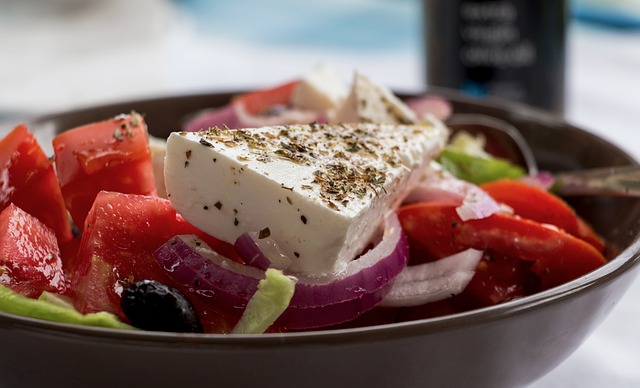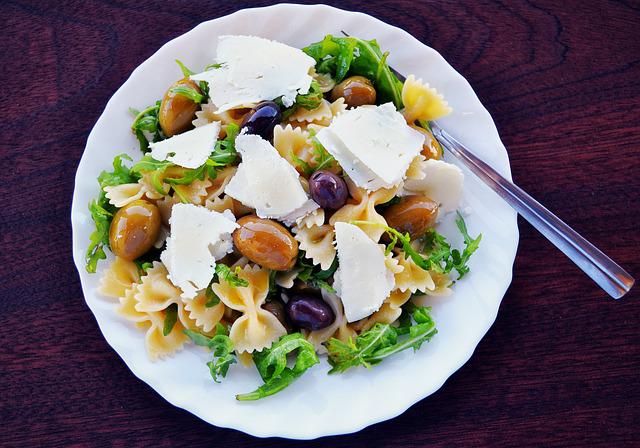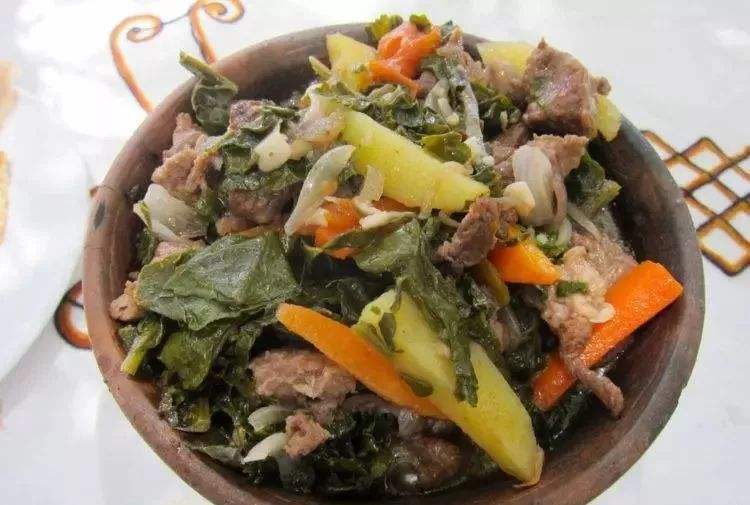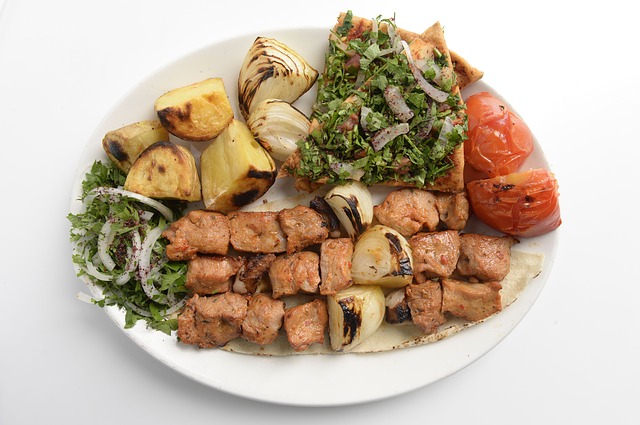Is Greek Food Healthy? Yes!
Is greek food healthy? Certainly yes.
Ultimately, traditional Greek food nearby is both healthy and flavorful, Furthermore, it contains a wealth of nutrients linked to positive health outcomes, including antioxidants, fiber, healthy fats, minerals, and vitamins.
Due to its association with the Mediterranean diet, which has been shown to have a wealth of health benefits, Greek food is frequently regarded as one of the world’s healthiest cuisines.
In terms of a diet that never goes out of style, the Mediterranean diet is the best example; it has withstood the test of time and is still regarded as one of the healthiest options available.
Due to its borders with Greece, Italy, Spain, France, Lebanon, Turkey, and North Africa, the Mediterranean Sea is a region of great cultural diversity.
Although each nation offers its own cuisine options and culinary customs, recipes from each culture have a significant amount in common, so different cuisines share nutritional qualities and ingredients.
Table of Contents
Why Greek Food Is Healthy?
The Mediterranean region has always included wheat, vineyards, and olive trees. However, the region has also served as a hub for the fusion of numerous cultures, so traditional Mediterranean dishes incorporate both locally grown ingredients and those that were long ago imported from other areas.
These foods are some of the stars of this delicious diet that promotes health.
Olive Oil & Olives Are A Staple
The top three producers of olive oil in the world are Italy, Spain, and Greece. Olive oil is a common element in the various Mediterranean dietary patterns found throughout the region.
Carotenoids and polyphenols found in extra virgin olive oil have anti-inflammatory and antioxidant properties.
The primary dietary source of fat is olive oil, which is also employed in cooking and baking.
Contrary to popular belief, premium extra-virgin olive oil has a high smoke point because it contains fewer free fatty acids.
The antioxidant polyphenols found in table olives, particularly Kalamata olives, are also abundant. Olives can also be eaten as a snack or added to food to add flavor.
Contain Wheat
The primary grain in the Mediterranean region is wheat, and farro (also known as emmer), an ancient variety of wheat that has gained popularity recently, is another traditional grain.
Unrefined wheat and barley flour is frequently used to make bread. Pasta and couscous are both made with Mediterranean wheat.
The whole-wheat flour produced traditionally by milling wheat with stones has a lower glycemic index and is rich in fiber.
Wild Greens Are One Of The Most Healthy Greek Foods
In Greece and other Mediterranean nations, savory pies made with greens are popular dishes. Just a few include fennel, dandelion greens, rocket, and chicory.
Naturally, the nutritional makeup varies depending on the species; for instance, darker greens are higher in carotenoids, vitamin C, magnesium, iron, and calcium.
Variety in the diet is ideal because not all greens are created equal in terms of their flavonoid content. Omega-3 fatty acids from plants can also be found in green vegetables.
Dandelion greens, purslane, and other cultivated greens can all be found in North America.
Wine: An Ancient Ingredient
Since ancient times, there has been a lot of alcohol included in the traditional Mediterranean diet.
It is typically consumed in moderation, as wine, and typically at meals.
Antioxidant polyphenols and flavonoids are found in red wine in particular. LDL (bad) cholesterol levels are decreased while HDL (good) cholesterol levels are increased by wine. See more about Is Ethiopian Food Healthy?
For Capers
This vital component, which grows wild all over Greece, is typically used as a flavorful garnish.
In Greece, capers are widely available as a healthy condiment in salads and have significant antioxidant properties.
Capers are fermented in sea salt, making them high in sodium even though they are low in calories. If you’re trying to limit your intake of salt, it’s always a good idea to rinse them under running water before using them.

Have Garlic
This fundamental component in many sauces and dishes is a staple of all Mediterranean cuisines.
As an illustration, aioli, an Italian sauce, is made by combining garlic with eggs and olive oil, whereas tzatziki, a staple of Greek cuisine, is yogurt mixed with garlic, cucumbers, and olive oil.
Garlic’s pungent smell and numerous health advantages, such as anticancer, antioxidant, and anti-inflammatory properties, are both due to the sulfur compounds that are also responsible for its health benefits.
Because Of Herbs
Polyphenols, in particular, are anti-inflammatory and antioxidant compounds found in herbs. Herbs are a source of flavonols that are used in Greek cooking.
While herbs and spices are different in each Mediterranean region, they are both vital to the cuisine there.
Several of the traditional herbs grown in North America naturally occur in the Mediterranean.
Feta & Yogurt
Traditional feta cheese and yogurt are fermented foods that are high in probiotics and add extra protein to a diet that consists primarily of plants.
Yogurt with honey is a typical Greek breakfast, while authentic Greek feta is made with goat’s milk or sheep’s milk.
For Chickpeas
In addition to supplying proteins, iron, and magnesium, chickpeas are a good source of fiber, folate, and manganese.
The main ingredient in many traditional Greek dishes, chickpeas are one of the earliest known cultivated legumes.
Lemon Provides Flavor And Health Benefits In Greek Food
Acidic foods lower glycemic responses because they prolong the time it takes for the stomach to empty.
Lemon zest’s high flavonoid content has a positive effect on blood sugar levels and aids in the management or prevention of diabetes.
Oranges and lemons originated in the East, and the Arabs brought them to the region.
Squeezing lemons over salads or fish, as well as in water, is a Mediterranean practice that’s considered healthy. This reduces the overall meal’s glycemic load.
What Sort Of Food Is Greek?
Greek cuisine is wholesome.
It is delicious, simple to prepare, and healthy.
And that final one is significant!
Greek cuisine can be useful if you’re trying to improve your health through diet.
Greek food offers a nutrient-dense foundation for any meal plan by emphasizing whole grains, protein-rich legumes like lentils and beans, and a lot of fresh produce (even if it is pickled).
That said…
Greek cuisine is delicious, as you should also know.
Again, there’s no reason to forgo flavor or variety in your diet just to eat healthfully!
Just three dishes from one nation (Greece) include baklava, which consists of layers of flaky phyllo pastry filled with chopped nuts and honey syrup, spanakopita, and tzatziki sauce, which combines cool yogurt with spicy dill and cucumber for an irresistible flavor combination.
Read about: Is Thai Food Healthy?
The Healthiest Cuisine Is It Greek?
The healthiest cuisine is Greek food.
Greek cuisine is nutritious, but not the most nutritious.
In actuality, Greek food isn’t even the healthiest in all of Europe.
French cuisine deserves that distinction.
But if you’re looking for a nation with a reputation for being particularly healthy, one that consequently offers more nutrient-dense meals than other countries, you might want to consider Greece.
What Is The Calorie Content Of Greek Food?
Greek cuisine has a reputation for being healthy, which draws a lot of people in.
In fact, it’s a good idea to eat more fruits and vegetables whenever you can, especially if they’re prepared with olive oil, but there are a few things you should be aware of regarding the number of calories in Greek food before deciding how frequently to indulge.
- Greek cuisine contains a lot of calories and isn’t the best choice if you’re trying to lose weight because it typically contains a lot of protein (chicken, lamb, or fish), fat (olive oil), and carbohydrates (pasta).
- A meal at an authentic Greek restaurant should have at least 1,000 calories for two people, though calorie counts vary from dish to dish.
- That amounts to more than half of what women should consume daily!
- Protein: Protein aids in the development of muscle mass, so consuming a lot of Greek food may be advantageous to your efforts to achieve a desired body composition, whether you’re trying out for the Olympics or simply want some muscles.
- However, consuming too much protein will increase blood pressure, which can be dangerous for people with heart or hypertension conditions.
- Fat: The majority of the time, eating less fat is associated with better health, but this isn’t always the case.
- Eating extra virgin olive oil won’t necessarily hurt anything here, either, since fats contain essential amino acids like tryptophan, which helps produce serotonin, the chemical that makes us feel happy. Fats also help us feel satisfied after meals.
Conclusion
Again, is greek food healthy? The answer is still yes.
The basis of the Greek diet is the product and people of Greece, as well as the eating customs of other Southern European nations. The staples of Mediterranean cuisine are fresh fruits and vegetables, whole grains, and lean proteins like fish and chicken, with the occasional serving of red meat. Proteins from non-meat sources like beans and legumes are also popular in soups, stews, and salads
Greek cuisine is renowned for its love of cooking with olive oil, which is rich in beneficial omega-3 fatty acids, in addition to offering a nutritious, well-balanced diet. It’s a great healthier alternative to butter because it has less saturated fat than that. Monounsaturated fats, which have been discovered to lower LDL or “bad” cholesterol levels, are also present in other foods like nuts, avocados, and oily fish.
The Greek diet and culture are not only a wonderful way to eat, drink, and live, but they are also a realistic and sustainable way to lower inflammation, prevent diseases, and maintain a healthy weight range. It should come as no surprise that the best medical professionals in the world—including dieticians, nutritionists, and dieticians—recommend adopting a Greek diet.
Visit The Great Greek Mediterranean Grill close by for tasty and fresh Greek food. Open now for contactless deliveries and curbside pickups. To view the menu or find a location near you, click here!























